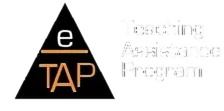Government Standards
Australian Curriculum
Science - Grade 10
Assessment Exam - Australian Curriculum - Level 10 Science| Science Understanding | eTAP Lesson |
|---|---|
| Biological sciences | |
| Transmission of heritable characteristics from one generation to the next involves DNA and genes
ACSSU184 |
Genetic Coding Rules Evidence of Evolution |
| The theory of evolution by natural selection explains the diversity of living things and is supported by a range of scientific evidence
ACSSU185 |
Natural Selection Selection and Diversity |
| Chemical sciences | |
| The atomic structure and properties of elements are used to organise them in the Periodic Table
ACSSU186 |
Connection Among the Location in the Table, the Atomic Number, and Mass |
| Different types of chemical reactions are used to produce a range of products and can occur at different rates
ACSSU187 |
Rate of Reaction |
| Earth and space sciences | |
| The universe contains features including galaxies, stars and solar systems, and the Big Bang theory can be used to explain the origin of the universe
ACSSU188 |
The Big Bang Model Where is the Solar System? Early Earth |
| Global systems, including the carbon cycle, rely on interactions involving the biosphere, lithosphere, hydrosphere and atmosphere
ACSSU189 |
Carbon and Nitrogen Cycle/Global Carbon Cycle Structure of Earth |
| Physical sciences | |
| Energy conservation in a system can be explained by describing energy transfers and transformations
ACSSU190 |
Internal and External Energy; Energy Budget |
| The motion of objects can be described and predicted using the laws of physics (
ACSSU229 |
Newton's First Law |
| Science as a Human Endeavour | eTAP Lesson |
| Nature and development of science | |
| Scientific understanding, including models and theories, is contestable and is refined over time through a process of review by the scientific community
ACSHE191 |
Finding Answers to Questions |
| Advances in scientific understanding often rely on technological advances and are often linked to scientific discoveries
ACSHE192 |
New Scientific Ideas |
| Use and influence of science | |
| People use scientific knowledge to evaluate whether they accept claims, explanations or predictions, and advances in science can affect people’s lives, including generating new career opportunities
ACSHE194 |
The Scientific Method |
| Values and needs of contemporary society can influence the focus of scientific research
ACSHE230 |
Information Collection |
| Science Inquiry Skills | eTAP Lesson |
| Questioning and predicting | |
| Formulate questions or hypotheses that can be investigated scientifically
ACSIS198 |
Hypothesis |
| Planning and conducting | |
| Plan, select and use appropriate investigation types, including field work and laboratory experimentation, to collect reliable data; assess risk and address ethical issues associated with these methods
ACSIS199 |
How to Draw and Present Conclusions Planning and Conducting an Experiment |
| Select and use appropriate equipment, including digital technologies, to collect and record data systematically and accurately
ACSIS200 |
Tools and Technology |
| Processing and analysing data and information | |
| Analyse patterns and trends in data, including describing relationships between variables and identifying inconsistencies
ACSIS203 |
Fossil Analysis |
| Use knowledge of scientific concepts to draw conclusions that are consistent with evidence
ACSIS204 |
Drawing Conclusions |
| Evaluating | |
| Evaluate conclusions, including identifying sources of uncertainty and possible alternative explanations, and describe specific ways to improve the quality of the data
ACSIS205 |
The Relationship Between the Rotation of the Earth and the Circular Motion of Ocean Currents and Air in Pressure Centers |
| Critically analyse the validity of information in primary and secondary sources and evaluate the approaches used to solve problems
ACSIS206 |
Researching an Argument |
| Communicating | |
| Communicate scientific ideas and information for a particular purpose, including constructing evidence-based arguments and using appropriate scientific language, conventions and representations
ACSIS208 |
Effective and Interesting Language |


